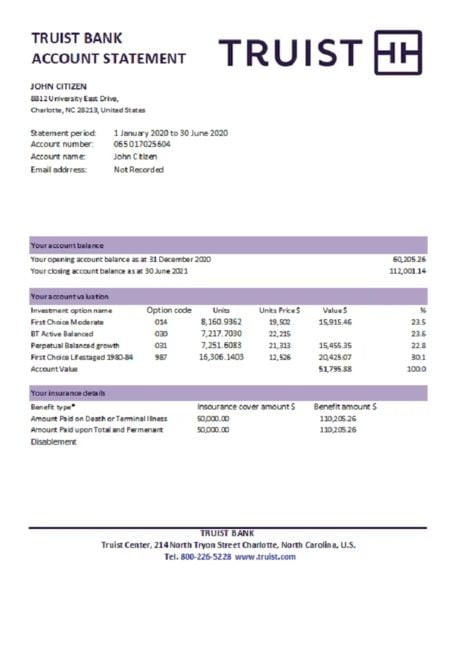
Are you facing the daunting challenge of do i need proof of income to renew apartment lease without traditional proof of income? In today’s ever-changing economic landscape, many tenants find themselves in this precarious situation, wondering if they’ll be able to keep a roof over their heads.
The good news? There are ways to navigate this tricky terrain and secure your lease renewal, even without the usual paycheck stubs or tax returns. Whether you’re self-employed, between jobs, or dealing with unique financial circumstances, it’s time to get creative and proactive. 💡
You can easily google search Proofofstatement software to generate your required income proof instantly LEARN MORE
In this blog post, we’ll explore seven effective strategies to help you renew your lease and maintain your housing stability. From understanding your landlord’s perspective to leveraging your strengths as a tenant, we’ll guide you through the process step-by-step. Let’s dive in and discover how you can turn this challenging situation into an opportunity to showcase your reliability and secure your home.
Landlord’s Perspective on do i need proof of income to renew apartment lease

A. Recognize their financial concerns
Landlords primarily seek tenants who can consistently pay rent on time. Without proof of income, you’ll need to address their financial concerns directly. Consider the following:
-
Rental income is often the landlord’s primary source of property-related revenue
-
Late or missed payments can significantly impact their cash flow
-
Eviction processes are costly and time-consuming for landlords
To alleviate these concerns, prepare a comprehensive financial package that demonstrates your ability to pay rent reliably, even without traditional income proof.
B. Identify their priorities in tenant selection
Understanding what landlords value most in tenants can help you position yourself favorably:
| Priority | How to Address It |
|---|---|
| Timely payments | Offer references from previous landlords |
| Property care | Provide photos of your current living space |
| Quiet occupancy | Highlight your lifestyle (e.g., professional, student) |
| Long-term stability | Express your intention for a long-term lease |
C. Anticipate potential objections
Be prepared to address common landlord concerns:
-
Risk of job loss or income reduction
-
Lack of verifiable income sources
-
Potential for subletting or unauthorized occupants
-
Concerns about your ability to handle unexpected expenses
By proactively addressing these issues, you can demonstrate your understanding of the landlord’s perspective and your commitment to being a responsible tenant. This approach can significantly improve your chances of securing a lease renewal without traditional proof of income.
Showcase Your Rental History

Compile a record of on-time payments
Creating a comprehensive record of your on-time payments is crucial when seeking a lease renewal without proof of income. This tangible evidence demonstrates your financial reliability to your landlord. Here’s how to effectively compile this record:
-
Gather bank statements
- Collect rent receipts
-
Print out digital payment records
-
Organize canceled checks
Present this information in a clear, chronological order to showcase your consistent payment history. Consider creating a simple table to summarize your payment record:
| Month | Year | Payment Date | Amount |
|---|---|---|---|
| Jan | 2023 | 01/01/2023 | $1000 |
| Feb | 2023 | 02/01/2023 | $1000 |
| Mar | 2023 | 03/01/2023 | $1000 |
Obtain references from previous landlords
Positive references from previous landlords can significantly strengthen your case for lease renewal. These testimonials provide third-party validation of your reliability as a tenant. To obtain effective references:
-
Reach out to former landlords politely
-
Request written statements highlighting your positive attributes
-
Ask them to emphasize your payment punctuality and property care
Highlight your responsible tenancy
Demonstrating your responsible tenancy goes beyond just paying rent on time. It involves showing how you’ve been an asset to the property and community. Consider creating a portfolio that includes:
-
Documentation of any improvements you’ve made to the property
-
Records of prompt reporting and cooperation in addressing maintenance issues
-
Evidence of your involvement in community activities or tenant associations
By showcasing your rental history comprehensively, you provide your landlord with compelling reasons to renew your lease, even without traditional proof of income. This approach not only addresses their concerns about financial stability but also highlights your value as a responsible, long-term tenant.
Offer Alternative Proof of Financial Stability

Provide bank statements
When traditional proof of income isn’t available, bank statements can be a powerful alternative. They offer a comprehensive view of your financial health, showcasing regular deposits and responsible spending habits. Present at least 3-6 months of statements to demonstrate consistency.
Show savings or investment accounts
Highlighting your savings or investment accounts can reassure your landlord of your financial stability. Create a table summarizing your assets:
| Account Type | Balance | Monthly Contribution |
|---|---|---|
| Savings | $10,000 | $500 |
| 401(k) | $50,000 | $750 |
| Stocks | $15,000 | $300 |
Present evidence of regular income sources
Even without traditional employment, you may have regular income streams. List these sources:
-
Freelance work or contract jobs
-
Rental income from other properties
-
Dividends from investments
-
Regular gifts or family support
-
Government benefits or pensions
Provide documentation for each source to strengthen your case.
Offer co-signers or guarantors
If your financial situation remains uncertain, consider offering a co-signer or guarantor. This person agrees to cover rent payments if you’re unable to do so. Choose someone with:
-
Stable employment
-
Good credit score
-
Sufficient income
With these alternative proofs of financial stability, you can demonstrate your ability to meet rent obligations. Next, we’ll explore how to negotiate flexible terms that benefit both you and your landlord.
Negotiate Flexible Terms

Propose a larger security deposit
When negotiating flexible terms for your lease renewal without proof of income, offering a larger security deposit can be a powerful strategy. This approach demonstrates your financial commitment and reduces the landlord’s perceived risk. Consider proposing a security deposit equivalent to 2-3 months’ rent instead of the standard one month.
| Standard Deposit | Proposed Larger Deposit |
|---|---|
| 1 month’s rent | 2-3 months’ rent |
| Lower risk mitigation | Higher risk mitigation |
| Less financial commitment | Greater financial commitment |
Suggest a shorter lease term
Another flexible option is to propose a shorter lease term. This can be appealing to landlords as it allows them to reassess the situation more frequently. Some benefits of suggesting a shorter lease term include:
-
Reduced long-term risk for the landlord
-
Opportunity to prove your reliability over a shorter period
-
Flexibility for both parties to reevaluate the arrangement
Offer advance rent payments
If you have savings but lack regular income, offering advance rent payments can be an excellent way to secure your lease renewal. This strategy:
-
Demonstrates financial stability
-
Provides immediate cash flow for the landlord
-
Reduces the landlord’s concerns about missed payments
Consider offering to pay 3-6 months of rent in advance, if possible. This significant upfront payment can greatly increase your chances of lease renewal approval.
Now that we’ve explored flexible negotiation strategies, let’s move on to demonstrating your value as a tenant, which can further strengthen your position in lease renewal discussions.
Demonstrate Your Value as a Tenant

Emphasize your property maintenance skills
Demonstrating your value as a tenant goes beyond simply paying rent on time. One way to stand out is by showcasing your property maintenance skills. Here’s how you can emphasize these abilities:
-
Compile a list of repairs or improvements you’ve made
-
Document regular cleaning and maintenance routines
-
Highlight any specialized skills (e.g., plumbing, electrical work)
| Skill | Example | Benefit to Landlord |
|---|---|---|
| Basic repairs | Fixed leaky faucet | Reduced maintenance costs |
| Landscaping | Maintained garden | Improved property value |
| Deep cleaning | Regular carpet cleaning | Extended life of fixtures |
Highlight your quiet and respectful lifestyle
A peaceful tenant is a valuable asset. Emphasize your considerate behavior:
-
Mention your adherence to quiet hours
-
Discuss your friendly relationships with neighbors
-
Highlight any community involvement or volunteer work
Showcase any home improvements you’ve made
Landlords appreciate tenants who treat the property as their own. Present any enhancements you’ve made:
-
List any upgrades you’ve installed (with permission)
-
Show before-and-after photos of improvements
-
Explain how these changes have increased property value
By demonstrating your value as a tenant through property care, respectful living, and home improvements, you’re more likely to secure your lease renewal. These qualities can often outweigh traditional income proof, as they show your commitment to maintaining the property and being a responsible tenant. Next, we’ll explore how leveraging personal connections can further strengthen your case for lease renewal.
Leverage Personal Connections

Seek character references from employers
When seeking a lease renewal without proof of income, leveraging personal connections can be a powerful strategy. Start by approaching your current or former employers for character references. These references can provide valuable insights into your reliability, work ethic, and financial responsibility.
| Reference Type | Benefits |
|---|---|
| Current Employer | Demonstrates ongoing employment and stability |
| Former Employer | Shows consistent work history and positive relationships |
| Long-term Employer | Indicates loyalty and dependability |
Create a list of potential employers to contact:
-
Direct supervisors
-
Human resources managers
-
Company owners (for smaller businesses)
Obtain recommendations from community leaders
Community leaders can offer credible endorsements of your character and reliability. Their recommendations can carry significant weight with landlords, as they often hold positions of trust and respect within the community.
Consider reaching out to:
-
Local religious leaders
-
Civic organization heads
-
Volunteer coordinators
-
Neighborhood association presidents
Use professional networks to vouch for you
Your professional network can be a valuable resource when seeking lease renewal without income proof. Colleagues, mentors, and business associates can attest to your professional reputation and potential for future income.
Tips for leveraging your professional network:
-
Reach out to well-connected individuals in your industry
-
Ask for LinkedIn recommendations highlighting your reliability
-
Request letters of support from professional organizations you’re involved with
-
Seek endorsements from clients or customers if you’re self-employed
By effectively leveraging these personal connections, you can present a compelling case to your landlord, demonstrating your trustworthiness and financial stability beyond traditional income documentation.
Explore Legal Options and Tenant Rights

Research local laws on income requirements
When facing challenges with lease renewal without proof of income, it’s crucial to understand your local laws. Different jurisdictions have varying regulations regarding income requirements for tenants. Here’s a brief overview of what you should consider:
-
Research your city and state tenant laws
-
Look for specific income-to-rent ratio requirements
-
Check if there are any exceptions for long-term tenants
| Aspect | Common Requirements | Possible Exceptions |
|---|---|---|
| Income-to-Rent Ratio | 2-3 times monthly rent | Lower for subsidized housing |
| Proof of Income | Pay stubs, tax returns | Alternative forms accepted |
| Length of Tenancy | New tenants scrutinized more | Relaxed rules for long-term tenants |
Understand fair housing regulations
Fair housing laws protect tenants from discrimination, which may include unfair income requirements. Key points to remember:
-
Familiarize yourself with the Fair Housing Act
-
Understand protected classes (race, color, national origin, religion, sex, familial status, and disability)
-
Look for any local expansions of protected classes
Consult with a tenant rights organization

Tenant rights organizations can be invaluable resources when navigating lease renewals without traditional income proof. They can:
-
Provide free or low-cost legal advice
-
Help interpret local laws and regulations
-
Offer mediation services between you and your landlord
-
Guide you through the process of filing a complaint if necessary
Remember, knowledge is power when it comes to securing your lease renewal. By understanding your rights and local laws, you’ll be better equipped to negotiate with your landlord and explore all available options.
Securing a lease renewal without proof of income may seem challenging, but it’s far from impossible. By understanding your landlord’s perspective and taking proactive steps, you can increase your chances of success. Showcasing your positive rental history, offering alternative proof of financial stability, and demonstrating your value as a tenant are powerful ways to build trust and confidence with your landlord.
Remember, communication is key throughout this process. Be open, honest, and willing to negotiate flexible terms that benefit both parties. If you encounter difficulties, don’t hesitate to explore your legal options and tenant rights. With persistence and creativity, you can overcome the obstacle of lacking traditional proof of income and successfully renew your lease, ensuring stability in your living situation.




